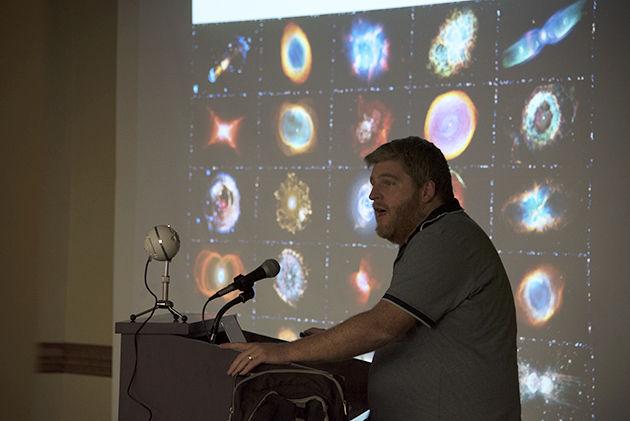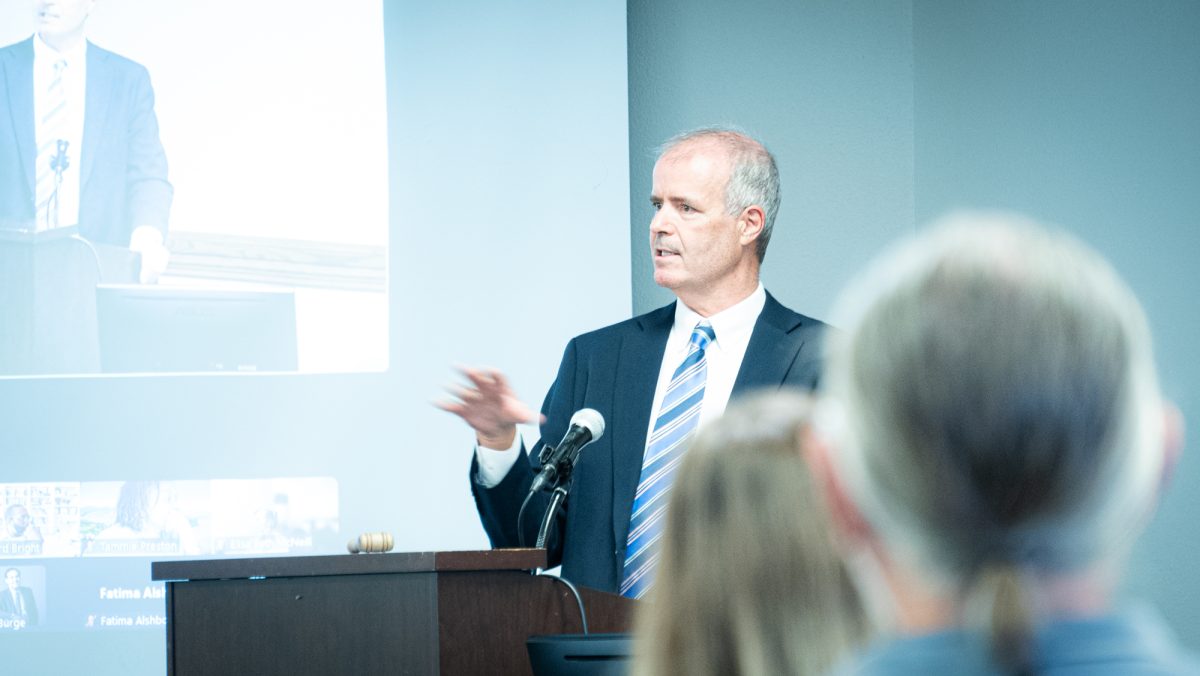Astrophysicists such as Luke A. Barnes, a postdoctoral researcher at the Sydney Institute for Astronomy, study the universe in mathematical terms to understand the mathematically based laws of the cosmos. Barnes brought some of that knowledge to campus Monday night.
Barnes discussed the laws of the universe and what might happen if they were not followed at his lecture titled, “A Fortunate Universe: Life, the Multiverse, and God,” hosted by Ratio Christi. Barnes spoke about the two types of astrophysicists — naturalists and theists — and how he finds God through his research.
“If you are a naturalist, you think you are understanding the basic physical rules of reality itself, Barnes said. “Whereas for me, as a theist, what I am discovering is the way in which God runs the universe.”
Biomedical engineering senior and president of Ratio Christi Zachary Lawson said he hoped both religious and nonreligious students would gain information from Barnes’ speech.
“For us as Ratio Christi, we like to bring the contemporary discussion to the forefront of students,” Lawson said. “So we were hoping for those that are not theists of any line to see that there are legitimate debates in physics that have implications in the philosophical realm, and specifically to religious place as well.”
Lawson said members of the Ratio Christi had discussed fine tuning before hosting Barnes’ book tour.
“In our own Ratio Christi circle, we’ve been debating the fine tuning argument back and forth,” Lawson said “Even though we put this event together, we are not convinced of some of the key tenants of fine tuning.”
Fine tuning is essentially the proposition that only a miniscule amount of known special conditions allow for life to exist, according to Barnes. This term was debated throughout the evening in Barnes’ speech and is a debatable topic for scientists and theologians alike.
“The fine tuning problem is something that is remarkable because it is, like Dr. Barnes mentioned, it’s a problem beyond physics,” Lawson said.
General Studies freshman Daisy Castillo attended the event because of her interest in the relationship between astronomy and God.
“I’ve always been interested in astronomy,” Castillo said. “I thought it would focus more on the argument that God created the universe, but it was more science-based- which wasn’t bad, it just wasn’t what I expected.”
For civil engineering senior Yen Nino, the speech provided a new view from previously understood relations between physics and religion.
“I was trying to learn from this, I had never looked into the religious point of view,” Nino said. “I always saw physics and religion very separate but it was nice to see it together.”
Barnes reached out to a deeper meaning behind the hard facts astrophysics in his book “A Fortunate Universe: Life in a Finely Tuned Cosmos” co-authored by Geraint F. Lewis. He tried to reach the same conclusions of his book during the 50 minute speech in hopes of people leaving with questions about the universe around them.
“We see things around us, we want to know how they work,” Barnes said. “It turns out they work in terms of deeper laws and we can try our best to understand those laws and how they play out in the universe.”
As a theological astrophysicist, Barnes finds a connection between a higher being and the physical world without discrimination between religions.
“For me, science is about learning how the physical world works,” Barnes said. “So I think that’s something that can happen regardless of what religious affiliation you have.”









